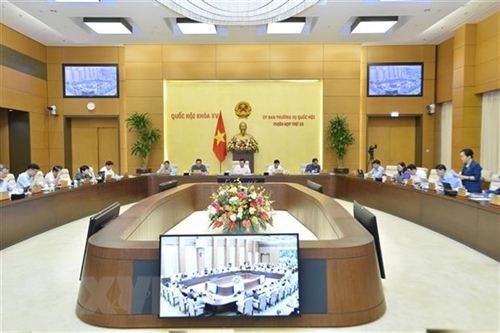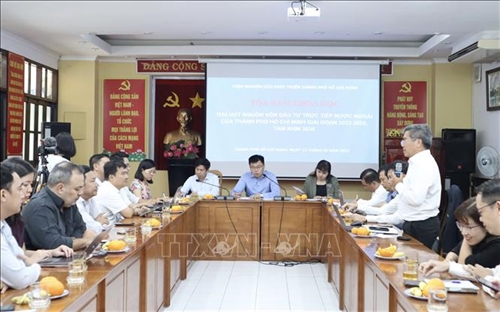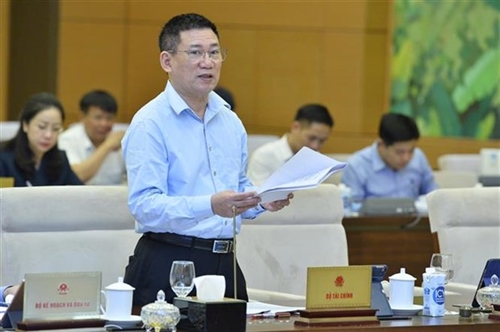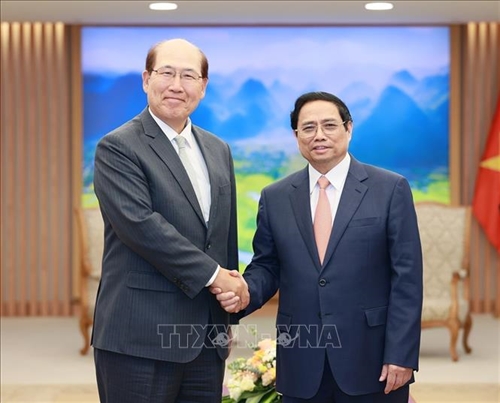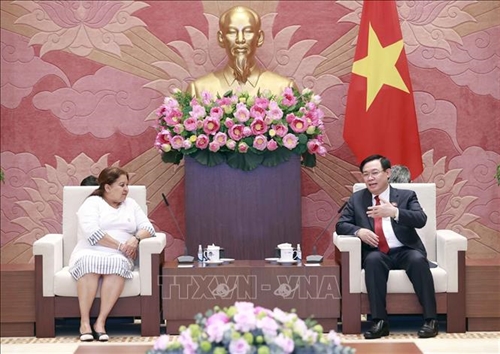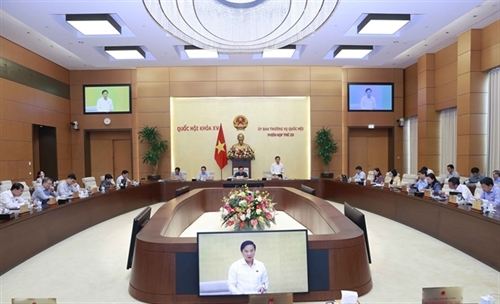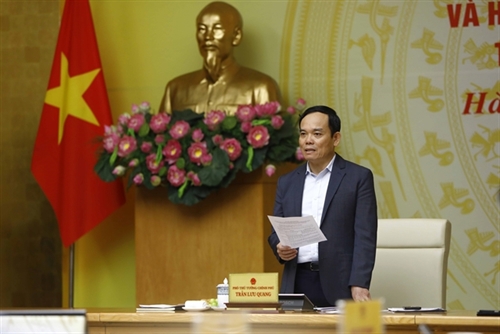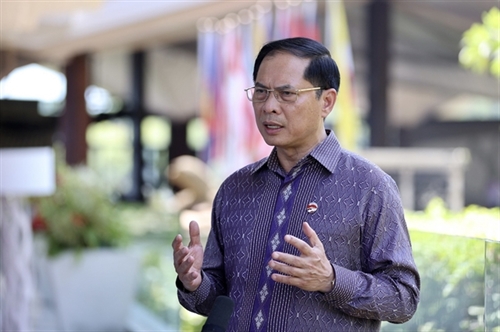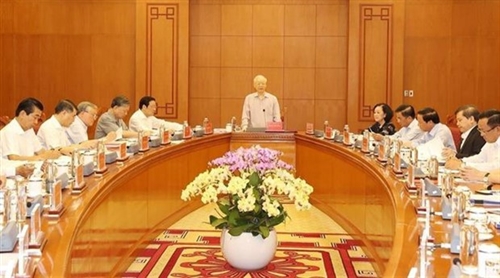Vietnam must continue to research and refine policy frameworks and state management mechanisms in the development of renewable energy, according to Pham Quang Huy, the deputy director of the Electricity Regulatory Authority of Vietnam under the Ministry of Industry and Trade.
He shared this perspective during the third Vietnam Clean Energy Forum, which took place in Hanoi on May 12.
As energy demand continues to rise and domestic sources of fossil fuels for electricity generation become increasingly scarce, ensuring national energy security has become a pressing issue that requires a long-term vision, Huy stated.
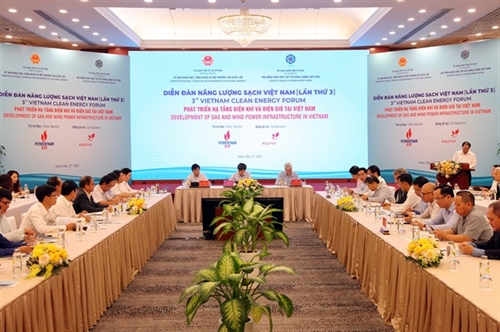 |
| Delegates at the third Vietnam Clean Energy Forum in Hanoi__Photo: quochoi.vn |
Consequently, Vietnam must devote considerable attention to improving its policy frameworks and state management mechanisms to facilitate the development and expansion of renewable energy sources.
The Vietnam Clean Energy Forum is a platform for experts, policymakers, and industry stakeholders to discuss the challenges and opportunities related to clean energy development in Vietnam.
The move aims to attract more participation from the private sector in infrastructure development and energy service provision as well as taking advantage of national resources and ensuring a balance for the safety of electricity system operation, he said.
Cap Tuan Anh, deputy head of the Development Strategy Department, Electricity of Vietnam (EVN), said developing renewable energy sources at reasonable prices is associated with ensuring operational safety and the economic benefit of the power system.
The structure of power sources, as well as wind power and gas power, in particular, for 2030 has been calculated by the consulting unit and decided by the competent authorities following the draft Power Master Plan VIII, he said.
EVN commits to strictly implement EVN's power source development program until 2030 when approved by the competent authorities, he said.
Power sellers tend to demand high electricity prices to maximize their profits, but EVN can only buy electricity at a reasonable price and comply with the law, he said.
In many cases, there is a big gap between the requirements of the seller and the ability to meet the requirements of EVN, he said.
“Therefore, we need to have clear regulations of the competent authorities to meet the principle of harmonizing benefits and sharing risks of parties involved in the purchase and sale of electricity, of which EVN is a participating party,” he added.
Other experts at the forum also suggested building a mechanism of direct electricity purchase and sale contracts to effectively implement electricity planning in the future.
Besides, improving the financial mechanisms for electricity development and investment and promoting policies to attract and encourage the private sector to participate in investment and development of power projects are believed to be very necessary, experts said.
Difficulties
Ta Dinh Thi, vice chairman of the National Assembly's Committee for Science, Technology and Environment, said the draft Power Master Plan VIII proposed to strongly develop onshore and offshore wind power, gas-fired thermal power plants for domestic use to replace coal-fired power plants, reducing greenhouse gas emissions gradually. Vietnam needs to make the most of the largest-rated offshore wind power potential in Southeast Asia.
Wind power projects require the nearest infrastructure to serve the survey, construction of transmission grids, operation and maintenance, and being ready to participate deeply in the power supply chain, he said.
According to the draft Power Master Plan VIII, the country needs to develop from 14,900 to 22,400 MW of imported Liquefied natural gas (LNG) by 2030 and could increase to 32,400 MW by 2035 to increase the base power source, balance and effectively exploit renewable energy sources, he said.
"We need infrastructure to import and store a sufficient amount of LNG for power plants to operate stably and to be able to sign long-term LNG purchase contracts,” he said.
Gas power infrastructure includes upstream, midstream and downstream stages, he said.
Especially, LNG power infrastructure is a complex fuel chain, including ports, warehouses, re-gasification systems, pipelines, and power plants, as well as a price mechanism and the mobilization of power generation to ensure the efficiency of the project chain, he said.
Referring to the difficulties in the development of wind and gas power over the past time, Huy said that currently, the negotiation of power purchase and sale contracts still meets difficulties because all factories want a high commission rate of electricity output to manage risks when gas prices have continuously increased in recent times.
He said that the power output negotiated under the contracts is not high enough, making it difficult to borrow capital to implement the project and recover costs for the investor.
In addition, mitigating the price risk of gas fuel can be done by purchasing gas under long-term contracts. Still, it always comes with a constraint on power output, becoming one of the problems affecting the investment in gas power plants over the past time, he said.- (VNS/VLLF)
